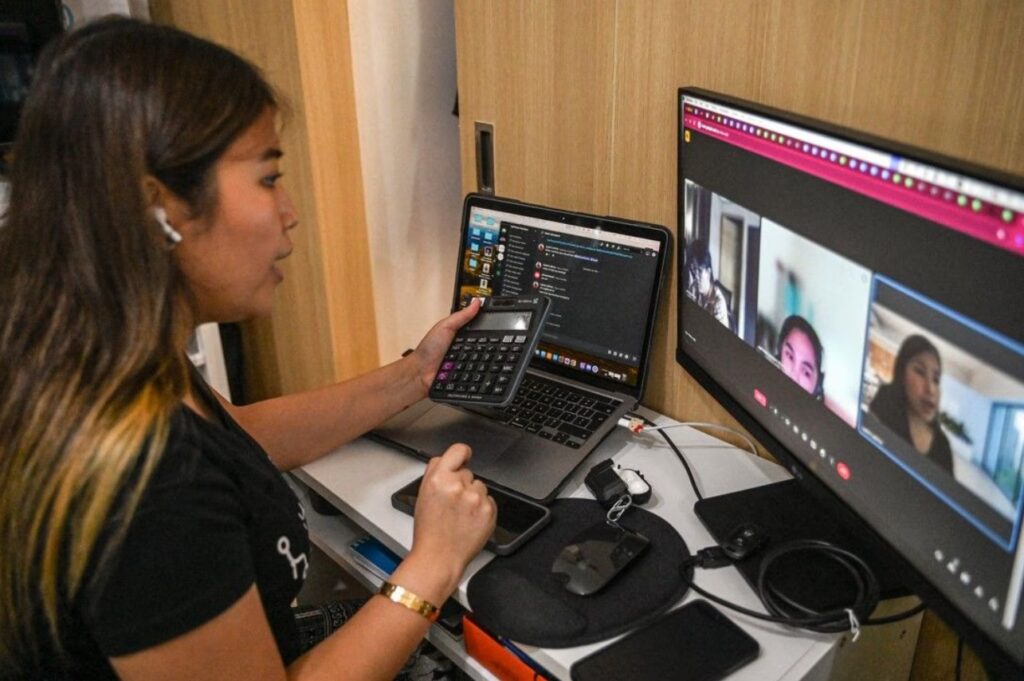In an era where global expansion demands agility and precision, businesses worldwide are adopting innovative strategies to access untapped talent pools without the burdens of traditional setups. The Employer of Record (EOR) hiring solution emerges as a pivotal tool, particularly for foreign companies eyeing the Philippines—a nation renowned for its skilled, English-proficient workforce and cost-effective labor market. This approach allows organizations to seamlessly build remote teams in the Philippines, sidestepping the labyrinth of local entity formation, regulatory compliance, and administrative hurdles. As global hiring solutions gain traction, an EOR facilitates international payroll solutions and HR outsourcing in the Philippines and ensures that companies can focus on core operations amid the complexities of cross-border hiring solutions. For enterprises contemplating global workforce management, understanding whether an EOR can truly support team-building efforts in this Southeast Asian hub is essential, especially given the intricate demands of employment outsourcing in the Philippines.
What Is an EOR Hiring Solution?
An Employer of Record (EOR) hiring solution represents a strategic partnership where a third-party provider assumes legal responsibility for employing workers on behalf of a foreign company, enabling swift access to international talent without establishing a local presence. This model is particularly vital for global expansion in the Philippines, where EOR services streamline the recruitment of remote teams while ensuring adherence to local labor laws.
- Core Functionality: At its essence, an EOR acts as the official employer, handling contracts, payroll, taxes, and benefits, allowing client companies to direct day-to-day management without legal entanglements. In the context of employer of record Philippines services, foreign firms can hire employees in the Philippines almost immediately, bypassing months of bureaucratic delays.
- Distinction from Alternatives: Unlike a Professional Employer Organization (PEO), which typically supports existing entities, an EOR is ideal for newcomers, offering end-to-end global hiring solutions. This differentiation is essential in EOR vs PEO debates, as the former excels in greenfield operations like building a team in the Philippines for tech or customer service roles.
- Relevance to Global Operations: EORs mitigate risks in volatile markets for businesses pursuing international hiring solutions, providing a buffer against currency fluctuations and regulatory shifts. In the Philippines, this translates to tapping into a workforce of over 1.5 million English speakers annually entering the job market, fostering scalable growth.
This framework reduces administrative overhead and empowers companies to integrate Filipino talent into hybrid models, enhancing competitiveness. As demand for such solutions surges— with projections estimating a 15% annual growth in Asia-Pacific EOR markets—adopting this approach becomes a cornerstone for sustainable expansion.
Requirements for Leveraging an EOR in the Philippines
To harness an EOR hiring solution effectively in the Philippines, companies must meet specific prerequisites that align operational needs with local and international standards, ensuring a foundation for compliant and efficient team-building. These requirements, while foundational, underscore the need for meticulous preparation in global workforce management.
- Business Objectives Alignment: Firms must clearly define hiring goals, such as scaling customer support or software development teams, to match the EOR’s capabilities. For instance, outlining the number of hires—ranging from a single virtual assistant to a 50-person remote team in the Philippines—helps tailor the employer of record Philippines package to precise demands.
- Documentation and Verification: Essential paperwork includes proof of business registration from the home country, detailed job descriptions, and budget allocations for salaries and benefits. Foreign companies hiring in the Philippines via EOR must also verify compliance readiness, such as anti-money laundering checks, to avoid delays in onboarding.
- Cultural and Skill Fit Assessment: Evaluating the Philippine labor market’s strengths—like a 92% English proficiency rate—requires conducting needs analyses to ensure hires align with company culture. This involves specifying technical skills for roles in BPO or IT, preventing mismatches that could inflate turnover costs.
- Financial and Legal Readiness: Securing funding for initial setup fees and ongoing remittances is critical, alongside understanding tax treaties to optimize international payroll solutions. EOR compliance in the Philippines mandates also include data privacy adherence under the Data Privacy Act 2012.
Navigating these elements demands expertise, as oversights can lead to stalled expansions or penalties. By fulfilling them proactively, businesses position themselves for frictionless integration of Filipino talent into global operations.
The Intricate Process of EOR Hiring
The EOR hiring process in the Philippines unfolds through a series of meticulously orchestrated steps, each laden with administrative intricacies that can overwhelm even seasoned HR professionals. This highlights why such undertakings often exceed individual capacity. This multi-layered journey, from candidate sourcing to full integration, exemplifies the complexities of employment outsourcing in the Philippines.
- Initial Consultation and Needs Assessment: It begins with a detailed audit of the company’s requirements, involving stakeholder interviews and market analysis to identify skill gaps. In the Philippines, this phase scrutinizes labor laws like the Labor Code, requiring hours of research into minimum wage variations across regions— a task prone to errors without specialized knowledge.
- Candidate Sourcing and Vetting: Leveraging local networks, EORs compile shortlists, but verifying credentials demands cross-referencing with the Professional Regulation Commission and conducting background checks. For global operations, this includes cultural fit evaluations via psychometric tests, a process that can span weeks and involve manually managing hundreds of applications.
- Contract Negotiation and Legal Review: Drafting employment contracts compliant with Philippine regulations—covering 13th-month pay, holiday entitlements, and SSS contributions—requires legal consultations. Negotiating terms like non-compete clauses adds layers of revisions, often necessitating bilingual experts to bridge communication gaps.
- Onboarding and Integration: The EOR onboarding process entails orientation sessions, equipment provisioning, and payroll setup, coordinated across time zones. Training programs must address data security under Republic Act 10173, with follow-ups to monitor probationary periods—details that accumulate into exhaustive documentation trails.
- Ongoing Management and Audits: Post-hire, quarterly compliance audits ensure adherence to evolving laws, such as recent DOLE amendments on remote work. This perpetual vigilance, including performance tracking and dispute resolutions, transforms hiring into a sustained, resource-intensive endeavor.
The sheer volume of tasks—from regulatory filings to stakeholder coordination—illustrates how the EOR hiring process burdens solo efforts, often leading to inefficiencies or non-compliance risks in building a team in the Philippines.
Benefits of Employer of Record Services for Global Expansion
Employer of Record services in the Philippines offer a constellation of advantages that propel global expansion, transforming potential pitfalls into pathways for innovation and efficiency. These benefits, rooted in streamlined operations, make EOR companies in the Philippines indispensable for forward-thinking enterprises.
- Rapid Market Entry: By eliminating the need for local entity setup, EORs enable hiring within days, not months, allowing foreign companies to capitalize on the Philippines’ 7% GDP growth in services exports. This speed is invaluable for seizing opportunities in fintech or e-commerce.
- Cost Efficiency and Scalability: Benefits of employer of record models include up to 70% reductions in administrative costs, as providers absorb expenses like office leases and legal fees. Scalable to fluctuating needs, this supports seasonal hires without fixed commitments.
- Enhanced Compliance and Risk Mitigation: EOR compliance Philippines expertise shields against fines—up to PHP 100,000 for violations—while ensuring equitable benefits like PhilHealth coverage. This fosters trust, reducing litigation risks in cross-border hiring solutions.
- Access to Premier Talent: Global hiring solutions via EORs unlock the Philippines’ pool of over 1.2 million BPO professionals, vetted for quality. Companies gain diverse skills, from AI specialists to multilingual support, boosting productivity by an estimated 30%.
- Focus on Core Competencies: With HR outsourcing Philippines handling mundane tasks, leaders redirect energies toward strategy, innovation, and client engagement, accelerating ROI on international expansions.
These multifaceted gains fortify operational resilience and cultivate a competitive edge in the global arena, where agility defines success.
Navigating Compliance and Challenges in Cross-Border Hiring
Cross-border hiring solutions in the Philippines present a tapestry of compliance imperatives and operational challenges that demand unwavering vigilance. Solo navigation is often a Herculean task fraught with oversights. In this domain, the imperative to seek expert intervention, such as from trusted providers like Out Task, cannot be overstated, as the convoluted interplay of laws and logistics underscores the process’s inherent complexities.
- Regulatory Labyrinth: Adhering to the Philippine Labor Code, including provisions for overtime (25% premium) and termination notices (30 days), requires constant updates amid amendments—like the 2023 Telecommuting Act. Missteps here invite DOLE penalties, compounding costs for unaware firms.
- Tax and Payroll Intricacies: International payroll solutions must reconcile BIR withholding taxes (5-32% brackets) with home-country treaties, involving monthly remittances and annual reconciliations. Errors in SSS and Pag-IBIG contributions can trigger audits, draining resources from core activities.
- Cultural and Logistical Hurdles: Time zone disparities (12-15 hours from the US) and cultural nuances in feedback styles necessitate tailored training, while procuring work visas for hybrid roles adds bureaucratic layers. Remote team Philippines management often falters without localized HR strategies.
- Data Privacy and Security: Compliance with the NPC’s guidelines under RA 10173 demands robust cybersecurity, especially for sensitive global operations data. Breaches risk PHP 5 million fines, highlighting vulnerabilities in unassisted setups.
- Scalability Pitfalls: As teams grow, coordinating benefits like hazard pay for night shifts becomes exponentially burdensome, with high turnover (15-20% in BPO) amplifying recruitment cycles.
Given these entanglements—where a single misfiling can derail months of progress—the process’s intricacy emphatically warrants professional stewardship. Out Task, a premier EOR provider in the Philippines, excels in demystifying these challenges, offering bespoke guidance that safeguards expansion ambitions and ensures seamless execution. Their integrated approach, backed by local expertise, transforms potential quagmires into structured triumphs, making them an indispensable ally for any enterprise venturing into this terrain.
Cost Analysis: Is an EOR Worth the Investment?
Evaluating the cost of EOR services in the Philippines reveals a compelling value proposition, where upfront investments yield substantial long-term savings and strategic dividends for global workforce management. This analysis dissects the financial anatomy, affirming the EOR’s role as a prudent fiscal choice.
- Breakdown of Fees: Typical structures include flat monthly per-employee charges (PHP 5,000-15,000) covering payroll processing, compliance filings, and basic HR support. Unlike entity setup costs (PHP 500,000+), EORs offer no minimum scalability, ideal for startups.
- Hidden Savings: By outsourcing, companies avert penalties (up to PHP 1 million for non-compliance) and recruitment expenses (20-30% of salary). This nets 40-60% lower total employment costs in the Philippines than onshore hiring.
- ROI Metrics: Enhanced retention through compliant benefits reduces turnover expenses by 25%, while faster onboarding (2 weeks vs. 3 months) accelerates revenue generation. For a 10-person team, annual savings can exceed PHP 2 million.
- Comparative Economics: Compared to in-house HR (salaries + training: PHP 1.5 million/year), EORs provide superior expertise at a fraction of the price, and transparent pricing models eliminate surprises.
- Strategic Intangibles: Beyond dollars, EORs unlock market insights and talent pipelines, amplifying global expansion in the Philippines trajectories and fostering innovation.
The calculus tilts decisively toward affirmation: an EOR justifies and amplifies investment returns, fortifying businesses against economic volatilities.
Key Takeaways
As multinational enterprises navigate the imperatives of globalization, the EOR hiring solution stands as a beacon for those seeking to construct robust teams in the Philippines without succumbing to administrative morasses. This article has illuminated the model’s intricacies—from foundational requirements and laborious processes to tangible benefits and compliance gauntlets—revealing its potency in enabling foreign companies hiring in the Philippines to thrive. Amid rising demands for agile, compliant global operations, EOR services Philippines providers like Out Task emerge as vital enablers, distilling complexity into executable strategies that propel sustainable growth. Whether scaling a remote team in the Philippines or orchestrating international hiring solutions, embracing an EOR transcends mere convenience; it embodies a forward-looking commitment to efficiency, resilience, and unencumbered innovation in an interconnected world.
Is Assistance Available?
Absolutely—Out Task stands ready as a trusted provider of EOR services in the Philippines, equipped to guide your global expansion with unparalleled expertise. Partner with Out Task today to transform hiring challenges into seamless successes. Reach out today to schedule an initial consultation with one of our experts.
- Contact Us Here
- Fill Out the Form Below
- Send an email to: info@OutTask.ph



